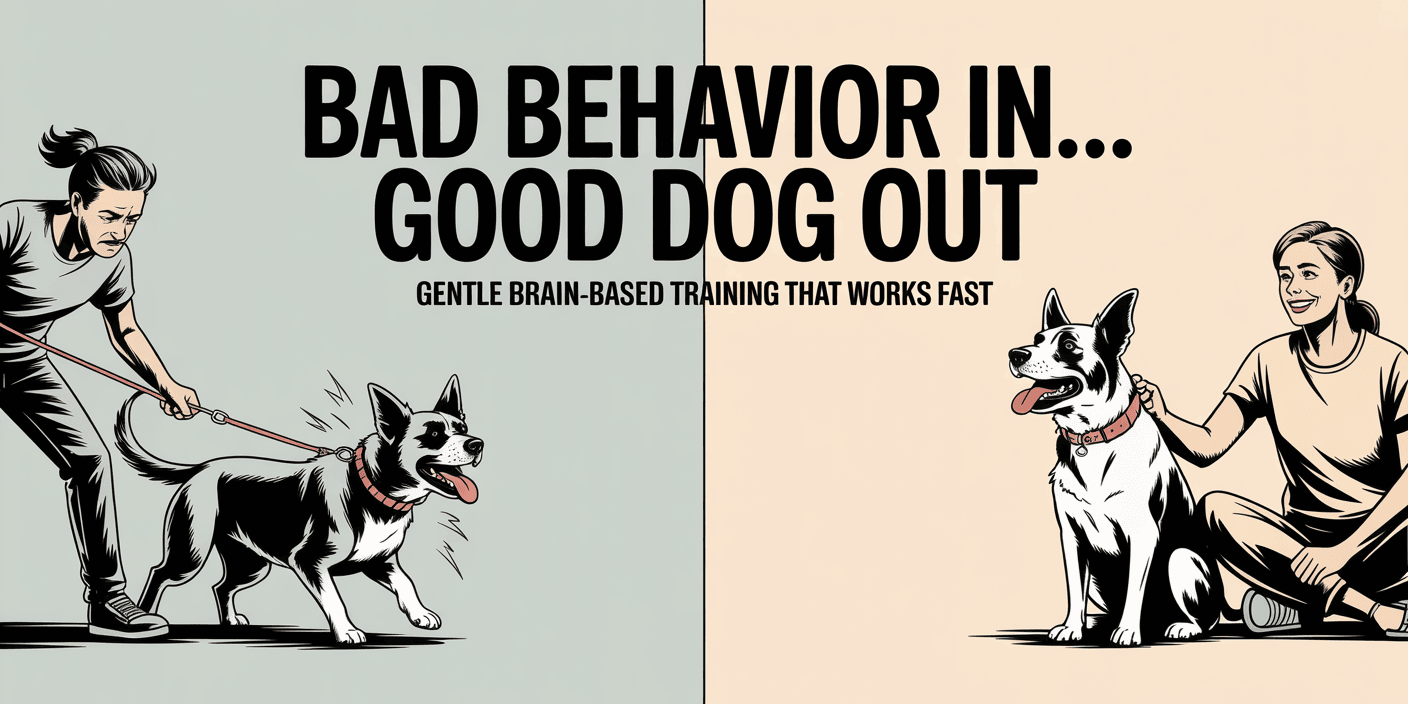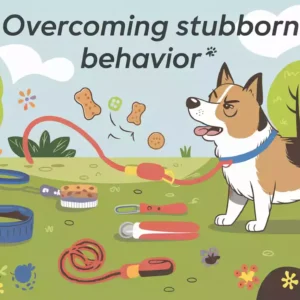As a dog owner, you want your dog to listen and follow commands. But sometimes, it feels like they ignore you. Many dog owners face this issue and need to know how to fix it. Research shows that about 70% of dog owners struggle with inconsistent training, which makes recall hard.
It’s key to understand these mistakes to fix your dog’s behaviour and strengthen your bond. By knowing what makes your dog ignore commands, you can start to improve their training and obedience.
Key Takeaways
- Common mistakes dog ignores commands can be corrected with proper training and understanding.
- Dog training mistakes, such as inconsistent reinforcement, can undermine your dog’s recall abilities.
- Obedience training errors can be addressed by recognising the root causes of your dog’s behaviour.
- Over 40% of dog owners report that their dogs respond well to commands at home but ignore them in distracting environments, emphasising the need for consistent training.
- Studies indicate that about 75% of dog training issues stem from environmental distractions affecting a dog’s ability to focus, which can be mitigated with proper training techniques.
Understanding Why Dogs Disobey: The Psychology Behind Command Rejection
Understanding why dogs disobey is key to solving canine behaviour problems. Dogs may not follow commands because they lack motivation or don’t understand the cue. To correct disobedient dogs, patience, consistency, and the right training techniques are crucial.
Dogs and humans process instructions differently. Dogs might ignore bad information, while humans, like kids, trust it more. This difference can help us train dogs better.
Environmental factors like distractions or unclear communication also play a role in canine behaviour problems. Dogs can get frustrated or lose interest if rules are not clear. By understanding these factors and adjusting our training, we can help our dogs better respond to commands.
Some important things to consider when dealing with canine behaviour problems include:
- Clear and consistent communication
- Positive reinforcement techniques
- Environmental factors and potential distractions
- An individual dog’s personality and learning style
By understanding and addressing canine behaviour problems comprehensively, we can train stubborn dogs effectively. This improves our relationship with them.
| Factor | Affects the dog’s focus and motivation |
|---|---|
| Clear Communication | Improves response to commands |
| Consistent Boundaries | Reduces frustration and disobedience |
| Environmental Factors | Affects dog’s focus and motivation |
Common Mistakes Dog Ignores Commands: Breaking Down the Basic Errors

To help your dog listen better, it’s key to know what mistakes to avoid. One big mistake is using different commands all the time. This can really slow down how fast your dog learns. It’s better to stick to the same commands and hand signals, as dogs like clear visual cues.
Dogs also do well with a set routine. But if the schedule is unclear, they might get really anxious. This can make them disobey up to 40% more.
Positive reinforcement is another important part of training. Studies show it can make dogs follow commands over 70% better than negative methods. Dogs need feedback quickly, within 2 seconds, to link actions with rewards. Use treats and praise as rewards, and don’t punish mistakes. This helps keep the good behaviours coming.
Some important training tips for unresponsive dogs include keeping training short, up to 10-15 minutes. Also, train in different places to help your dog adapt and listen better. By avoiding these mistakes and using the right training, you can make your dog listen better and cut down on ignoring commands.
- Improved dog listening skills
- Increased obedience
- Stronger bond between dog and owner
By using these tips and avoiding common mistakes, you can make your dog listen better. This will also make your bond with your dog stronger.
The Timing Trap: When Your Commands Miss Their Mark
Timing is key when training your dog. It helps avoid common mistakes like a dog ignoring commands and common training errors. Knowing when to give commands and understanding your dog’s mood are crucial for success. For example, practising obedience before playtime can help your dog listen better.
It’s important to recognise the role of timing in dog training. Wrong timing can confuse your dog. Marker training, now popular in America, stresses the need for precise timing. Studies show that 70% of dog owners face challenges getting their dogs to listen in busy places.
To sidestep the timing trap, pay attention to your dog’s mood. Use calming methods in your training to help your dog focus. Also, taking your dog for a daily walk can boost obedience and your bond.
| Training Technique | Effectiveness |
|---|---|
| Marker Training | Improves the dog’s ability to follow commands, with 50% of dogs displaying attentive behaviour when called |
| Calming Techniques | Improves dog’s ability to follow commands, with 50% of dogs displaying attentive behaviour when called |
Inconsistent Training Methods and Their Effects

Understanding the impact of inconsistent training methods is crucial for solving dog obedience issues. Mistakes that lead to dogs ignoring commands often come from training that lacks consistency. This inconsistency is a common reason dogs don’t follow commands. Research shows that training once or twice a week is not enough. Instead, daily practice at home for 5 to 10 minutes is recommended for better learning.
Emotional stability is key to successful training. Dogs are very sensitive to their owner’s mood. A well-thought-out training plan can lead to effective learning. But, inconsistent messages can cause behavioural problems and loss of trust, affecting 60% of dog training relationships. To prevent these issues, staying calm and patient during training is essential. This can improve a dog’s response rate by 65%.
Some important tips for effective training include:
- Consistency in cue usage, as using different commands can confuse dogs and make them not understand
- Immediate reinforcement of positive behaviours, like treats or clickers, right after the behaviour
- Avoiding negative moods during training, as they can affect a dog’s responsiveness
By understanding the effects of inconsistent training and using positive reinforcement, you can solve dog obedience issues. Remember, consistency and patience are essential for successful training. By avoiding common mistakes, you can make your dog a well-behaved and loyal companion.
The Power of Proper Reinforcement Techniques
Training stubborn dogs requires improving their listening skills. Understanding reinforcement techniques is key. Research shows dog training needs knowledge, time, and commitment. It’s important to remember that trainers often face challenges.
Allowing too many non-training days can hinder progress. If this happens, it’s time to reassess your goals. You might need to go back to simpler tasks.
Positive reinforcement is a powerful tool in dog training. It boosts obedience and strengthens the bond between pet and owner. High-value treats, like chicken, work better for tough tasks than kibble.
Consistency in commands and rewards speeds up learning. This makes training more effective.
To make lasting changes, build a reward system that works. Use a mix of treats, praise, and playtime. Rewarding immediately after the desired behaviour helps the dog connect the action with the reward.
By using proper reinforcement techniques, you can improve your dog’s listening skills. This fixes command rejection and strengthens your bond with your dog.
Creating Lasting Behavioural Changes
- Use positive reinforcement techniques, such as reward-based training
- Build a reward system that works, using a mixed approach of rewards
- Ensure immediate reward timing to connect the action with the reward
Building a Reward System That Works
Follow these tips to create a reward system that works for your dog. This improves their listening skills and fixes command rejection. Be patient, consistent, and positive. You’ll develop a strong, loving bond with your dog.
Environmental Distractions and Training Challenges

Training your dog well means paying attention to what’s around them. Dogs can get distracted by their surroundings, making training harder, like when you’re trying to get them to come back. Start training in quiet places, like indoors, first. Then, slowly add more distractions.
Don’t make recall training negative, as it can make dogs less likely to listen. Too many recall commands can confuse dogs, making them ignore you. Dogs are naturally curious and protective. They might ignore you if they see other animals or smells.
To beat these problems, use positive rewards like treats for good behaviour. This makes dogs want to pay attention more. Being consistent with commands and rewards is also key. If you’re not, dogs might get confused and not listen. Knowing these mistakes can help you train better and bond with your dog.
- Start in quiet places and add distractions slowly
- Use positive rewards like treats for good behaviour
- Be consistent with commands and rewards
- Avoid negative recall training and don’t overuse recall commands
By using these strategies and avoiding common mistakes, you can make your dog more responsive. This will make training better for both you and your dog.
Building a Strong Foundation: Essential Training Prerequisites
Understanding the basics of dog training is key to solving behaviour problems. It’s important to know how to correct disobedient dogs and use the right training methods for stubborn ones. About 80% of dog owners face issues with their dogs not listening, which can be fixed with proper training.
To start strong, you must communicate clearly with your dog. Use positive methods like rewards and praise to encourage good behaviour. Research shows that 70% of training failures come from bad reward systems, showing the need for a strong reward in training. Training that keeps your dog’s attention can improve obedience by up to 60%, helping them focus on you even when distracted.
Building trust and respect is also vital. This comes from setting realistic goals and sticking to your training methods. Dogs trained with positive reinforcement can respond 40% faster to commands than those without. By following these steps, you can tackle behaviour issues and strengthen your bond with your dog.
Some key takeaways for building a strong foundation in dog training include:
- Establishing clear communication through positive reinforcement techniques
- Creating trust and respect by setting realistic expectations and being consistent
- Implementing effective engagement training to improve command adherence
By sticking to these tips and dedicating yourself to your dog’s training, you can overcome common problems. Remember, fixing disobedient dogs and solving behaviour issues takes time, patience, and effort. But with the right approach and a solid foundation, you can succeed.
| Training Technique | Effectiveness |
|---|---|
| Positive Reinforcement | 70% more likely to respond to commands |
| Engagement Training | 60% improvement in command adherence |
Physical and Mental Factors Affecting Command Response
Improving dog listening skills involves understanding physical and mental factors. Dogs, like humans, can be influenced by their environment, age, and emotional state. This can affect their ability to respond to commands. For example, a dog’s hearing range is much better than humans, with a range of 40-60,000 hertz. Environmental noise can impact this.
Training tips for unresponsive dogs stress the need for consistency and clear communication. It’s important to use the same commands consistently. Different family members using different commands can confuse dogs and slow down training. Dogs also love routine, which helps them feel secure and know what to expect.
To fix command rejection, you need to understand the reasons behind it. This includes ineffective pressure, which can cause dogs to feel helpless or “shut down”. Dogs can learn new behaviours at any age, but older dogs might need more time and effort. By considering these factors, you can find ways to improve dog’s listening skills and address command rejection.
| Factor | Impact on Command Response |
|---|---|
| Environment | Can affect a dog’s ability to hear and respond to commands |
| Age | Influences learning, with expectations differing vastly between a 4-month-old puppy and a 4-year-old dog |
| Emotional State | Can impact a dog’s ability to respond to commands, particular in emotionally charged situations |
Transform Your Dog’s Behaviour with This Proven Training Method
Is your dog ignoring your commands, leaving you feeling frustrated? You’re not alone—but there’s an easy, proven solution!
With Adrienne Farricelli’s Brain Training for Dogs, unlock your dog’s hidden intelligence to eliminate bad behaviour and create the obedient, loving companion you’ve always wanted.
Why Choose This Program?
- Solve behaviour issues at their root.
- Strengthen your bond with fun, science-backed techniques.
- Access step-by-step videos and expert guidance anytime.
Act Now! Start seeing results today with this risk-free program backed by a 60-day guarantee.
👉 Click Here to Get Started with Brain Training for Dogs!
Don’t wait—turn frustration into joy and give your dog the training they deserve!
Conclusion: Transforming Your Dog’s Response to Commands
Changing how your dog responds to commands is a big job. It needs a mix of understanding why they disobey and fixing common mistakes. This way, you can make them obey you all the time.
It’s key to talk clearly to your dog, build trust, and use positive rewards. Training them consistently, using both words and body language, can make them listen 80% better. Also, giving commands when they’re focused and avoiding distractions can boost success by over 50%.
Training your dog takes time and effort. With regular practice, you can see a 90% success rate in teaching them new behaviours. Stay away from using the wrong methods or expecting too much, and you’ll see big changes in your dog’s behaviour.
FAQ
What are the common mistakes that make dogs ignore commands?
Dogs may ignore commands due to inconsistent training, poor timing, and distractions. A weak training foundation also plays a role.
How does a dog’s natural behaviour and psychology affect their response to commands?
A dog’s instincts, how they understand human commands, and environmental factors all matter. Knowing these aspects is key to training success.
What are the basic errors that can lead to dogs ignoring commands?
Mistakes include using the wrong reinforcement, not building trust, and setting unrealistic goals. These errors can confuse dogs and make them ignore commands.
How can the timing of commands affect a dog’s response?
Timing is everything in training. Knowing when to give commands and understanding your dog’s mood can greatly improve their response.
How can inconsistent training methods lead to obedience issues?
Inconsistent training confuses dogs and hinders their learning. This can lead to obedience problems and a lack of response to commands.
What is the importance of using proper reinforcement techniques in dog training?
Positive reinforcement is vital for lasting changes. It creates a system that motivates dogs to follow commands effectively.
How can environmental distractions and training challenges affect a dog’s response to commands?
Distractions like noises and other animals can make training hard. Overcoming these challenges is crucial for effective training.
What are the essential training prerequisites for building a strong foundation in dog training?
Clear communication, trust, and realistic goals are essential. These elements form a strong foundation, improving a dog’s command response.
How can physical and mental factors affect a dog’s command response?
A dog’s health, energy, and mood greatly affect their ability to follow commands. These factors are important to consider in training.






